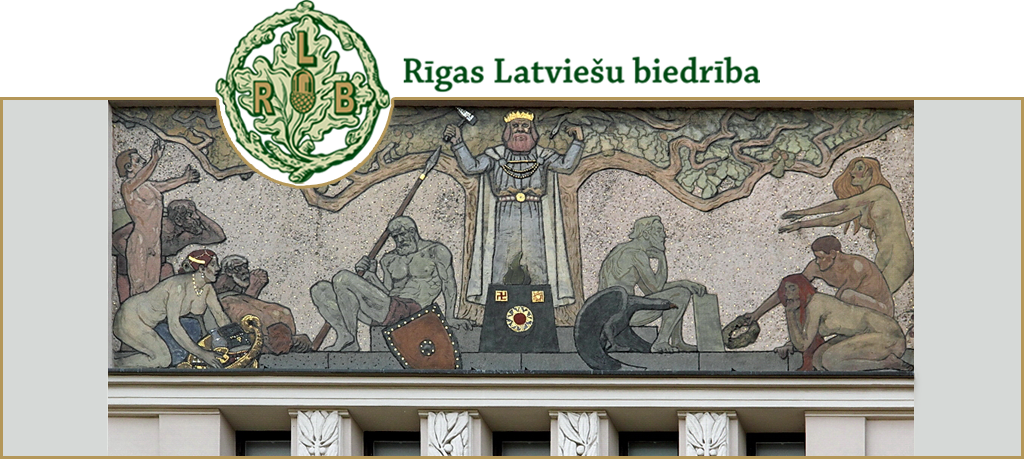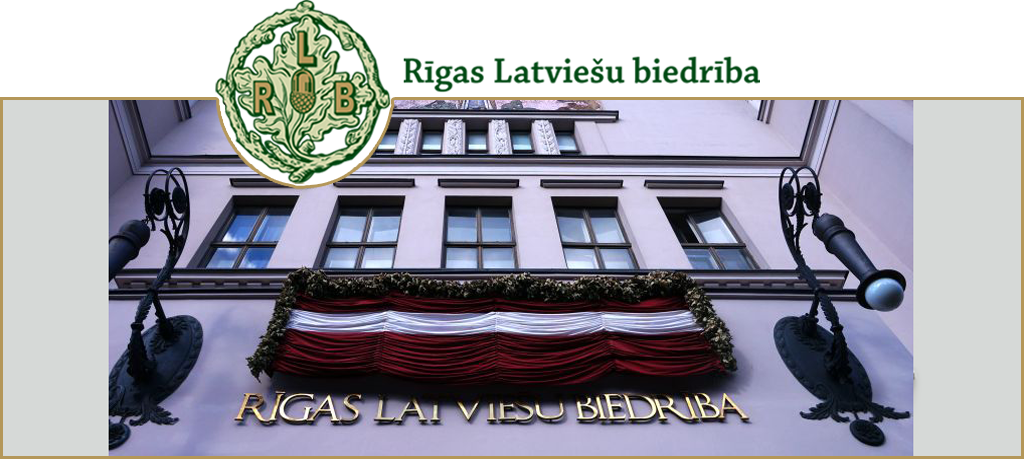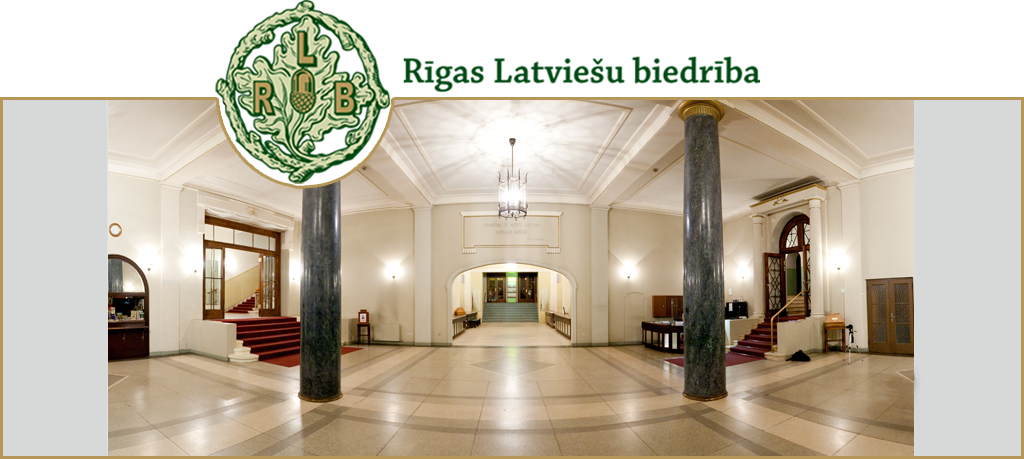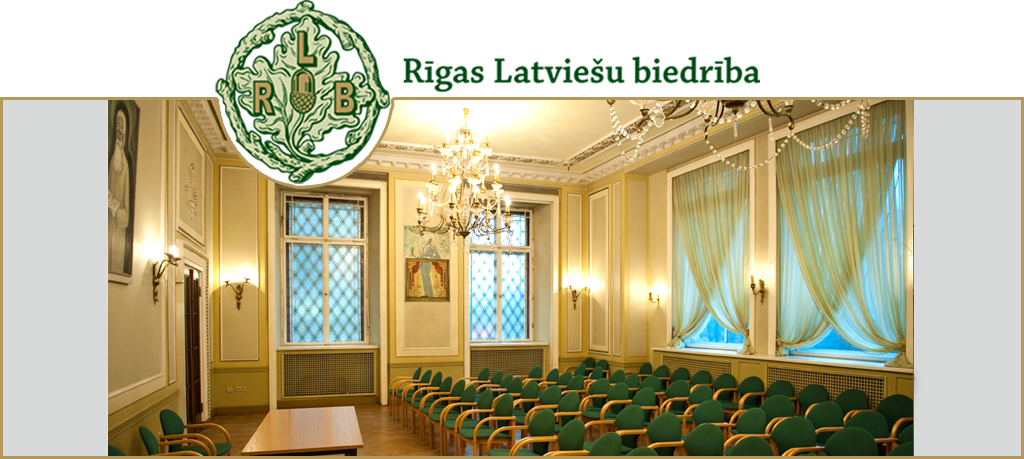



Canberra Latvian Society
21.01.2015
Canberra Latvian Society (CLS) is one of the first Latvian Societies in Australia, founded on May 8, 1949, to unite Latvians, who live in Canberra and who acknowledge continuing and promoting of Latvian culture and traditions.
Shield with red-white-red colours and inscription Latvija are depicted in the Societys logo.
CLS administration consists of General Meeting, Board and Auditing Commission.
The Chairman of the Canberra Latvian Society is Ēriks Ingevics.
In the general meeting, that takes place once a year, all Societys members, who have the right to vote, can participate. The General Meeting elects the Societys Chairman and other Board members. Between them are vice-chairman, secretary, cashier and other Board members, whose number can determine the Board. General Meeting elects also the Auditing Commission.
 History
History
The founder of the CLS was Canberra Latvian Committee that started its work on January 1949, following the demand of Ministry of Immigration of Australia to choose the representative from Latvians to stay in contact with local institutions and society. The members of this committee were Jānis Vēliņš (Chairman), Gerda Longmane (vice-chairman and Latvians representative), Valeska Lāna, Rūdolfs Krastiņš and Jānis Skuja. No-one of the Committees members was elected in the board of the new Society.
The first members of the Canberra Latvian Society Board were: Eižens Freimanis (Chairman), Oskars Pumpurs (vice-chairman), Elvīra Ārone (secretary), Justiāns Doniks (cashier) and Jānis Miezis (person, who collected information about members). The ceremonious event of the Societys foundation took place on June 25, 1949 and it concluded with the Ligo Ball.
Under the Society the first Canberras culture and social events were organised. The choir, sports interest group, folk dance group and library were founded. Later handicraft interest group started its work. Theatre performances and social evenings were organised. Latvians participated in immigrants events together with other nationalities.
During the first years of the Societys work its administration changed often because of the members disagreements. Stability was achieved in the middle of 1950s, when Boris Kokle became the Chairman of the Society. He stayed in Chairmans post for 14 years until his death in 1968.
In the first years of the Societys existence one of its main aims was to introduce the Australian community with Latvian immigrants and help the local institutions to cooperate with newcomers. Later, when Latvians had got accustomed with the new home country, the role of the Society changed. The main task now was to develop and maintain Latvians cultural and social life.
In the middle of 1970s the CLS together with other organisations were involved in the political campaign against Gough Whitlams managed Labourer Partys decision to celebrate de jure Baltic States annexation to the Soviet Union in 1974. Wide demonstrations were organised in many towns, protest letters and petitions were written to the government and Parliament. This campaign, where all Baltic nations participated, achieved that Liberal and Country Parties, which were in opposition in that time, promised to withdraw Whitlam governments decision. It was done, when Malcolm Frasers lead coalition won in years 1975 elections.
In 1977 younger generation started to lead the Society. Jānis Ātrens was elected as a Chairman. The Society, together with other Canberra Latvian organisations, participated in organising Australian Latvians Culture Days in 1976, 1982 and 1990.
Latvias Political awakening at the end of 1980s brought changes in the Societys work. Wide political activities started connected with resuming of Latvian independency that became the main aim of the Society. Demonstrations were organised, protests were made to embassies and politicians, and information was prepared for the press and television. The Society received those, who were expelled from the Soviet Union as this regimes enemies and organised them meetings with Australian politicians and Canberra Latvians. These events gave new energy to the Societys work that had been weakened.
New period in the Societys work started with the collapse of the Soviet Union and the resumption of Latvias independencys de facto. Now the main tasks of the Society were to contact with Latvia, to keep Latvians together, who lived in Canberra and its neighbourhood and to promote aid work for the renewed Latvia.
At the beginning, under the control of the CLS, the school, library, and choir were working, as well as folk dance, theatre and handicraft interest groups. Then these groups gave a huge contribution to the Societys work, but in last years period part of them had ended their existence.
Developing of the Mixed Choir was one of the first Canberra Latvians culture events. The choir was founded in 1949 under the leadership of the conductor Staņislavs Minčenko. At the beginning the choir had 40 singers. Because of the conductors change the number of choir singers reduced and the work of the choir stopped for a while, bet later it was renewed. During next years Valdemārs Rullis, Pranas Darius, Irma Pumpura and Kaspars Svenne conducted the choir. One period in Canberra worked also mixed double quartet and men choir. Mixed choir ended its work after the Culture Days in Canberra in 1990.
Canberra Latvians Sunday school started its work in 1953 with 20 pupils and 6 teachers. At the beginning it worked under the wing of Canberra Latvians Lutheran Church. School worked with interruptions, the number of pupils and teachers changed. In 1958 the school was taken over by the CLS. During the first years there worked teachers, who had gained their education in Latvia. Later, in 1970s new activity started with the involvement of teachers, who had obtained their pedagogical education in Australia. Schools leaders were Rita Alpa, Austra Gūtmane, Māra Siksna, Irēna Svilāne, Pēteris Medenis and Silvija Kreitāla. School finished its work in 1989.
Canberra Latvians handicraft interest group was founded in 1972 after initiative of Emma Āboltiņa and Sofija Sapiete. Its aim was to obtain, preserve and popularise Latvian applied art and to do everything to pass this our nations heritage to next generations. Participants of the group organised many exhibitions and participated in Latvian Culture Days in Australia with huge success. The group organised literary afternoons and actively participated in Canberra Latvians social life. The participants of the group founded also theatre group and staged several plays, mainly in the production by Māra Mūrniece. The interest group has ended its work because of the reduction of the number of participants.  Activities
Activities
Folk dance group Sprigulītis (Flail) exists for already 61 year under the wing of Canberra Latvian Society. The folk dance group was founded on December 13, 1953 under the leadership of Skaidrīte Dariusa. First 20 years of its existence the dance group danced in whole Australia in Culture Days, Youth Days, as well as in their own town organised dance performances and together with dance groups from other towns. In 1973, having won the competition, Sprigulītis danced in the opening concert of Sidney Opera House and after that participated in Opera House organised folklore festivals every year. In 1976 Sprigulītis together with the dance group Jautrais pāris (Marry Couple) united and made ensemble Saules josta (Sun Belt) and staged 10 huge dance performances (choreography - Skaidrīte Dariusa) that were shown during 7 world tours (North America, South America and Europe), including also Latvia in two last tours. Since 1990 Sprigulītis has been participating also in Latvian Dance and Song Festival. Hundreds of people have danced in Sprigulītis. During its best times there danced more than 50 dancers. Today there dance already the third generation. It has become families dancers group, because there dance parents (second generations dancers) with their children. The artistic leader of Sprigulītis since its foundation has been Skaidrīte Dariusa.
The Society organises events with lectures, discussions, video presentations, artistic performances and social evenings once a month. Each year Jāņi are celebrated. Some of these events are organised in cooperation with organisation Daugavas Vanagi (Daugava Hawks). Without of the regular events, the Society organises celebration of Proclamation Day of the Republic of Latvia on November 18 and Remembrance Day of Deported on June 14 each year. People, who hold speeches during Latvias Proclamation Day nowadays, are, mainly, from Latvia and they appear also in other biggest Latvians centres in Australia. Remembrance Day of Deported usually is organised for all Baltic people together and it is held in English language. This event is organised by all three Baltic States in turn.
Sometimes Canberra Latvians have opportunity to meet government delegations from Latvia that go to Canberra to meet representatives from Australian government. In 1996 the delegation from Latvias Parliament were in Canberra headed by Alfrēds Čepānis. In 2007 second delegation headed by Indulis Emsis visited Canberra. CLS organised the delegations meeting with Latvians, living in Canberra. CLS supports financially different cultural events in Latvia from time to time.
Since the restoring of Latvias independency, many Latvian artists and representatives from other culture spheres from Latvia and other home countries have visited Canberra. For example, on May, 2014, during his visit in Australia, the Riga Latvian Society Chairman Guntis Gailītis visited Canberra Latvian Society.
In 2014 Canberra Latvian Society celebrated its 65th anniversary. Although, activities of some branches will decrease with reducing of Canberra Latvians family, Canberra Latvian Society will continue its work by organising regular events, celebrating main Latvias State remembrance days and gathering together Latvians from Canberra. Contacts
Contacts
Societys address
Canberra Latvian Society, PO Box 6103, Kingston, Canberra, ACT 2604, Australia
Chairman Ēriks Ingevics
133 MacKenzie Street, Hackett, ACT 2602, Australia
T. 61 02 62477290
E mail: e.inge@y7mail.com
Vice-Chairman Juris Jakovics
3 Bingley Crescent, Fraser, ACT 2615, Australia
T. 61 02 62586189
E mail: jakj@iimetro.com.au
Secretary Andrejs Grigulis
11 Cotton Place, MacGregor, ACT 2615, Australia
T. 61 02 62551467
E mail: grigulis@velocitynet.com.au
Cashier Jānis Stambulis
3 Gilday Place, Fadden, ACT 2904, Australia
T. 61 02 62918032
E mail: jstambulis@yahoo.com.au
Public Relations Manager Skaidrīte Dariusa
48 Rivett Street, Hackett, ACT 2602, Australia
T. 61 04 17654002
E mail: skaidrite@ozemail.com.au
|
Ielādēju...
|